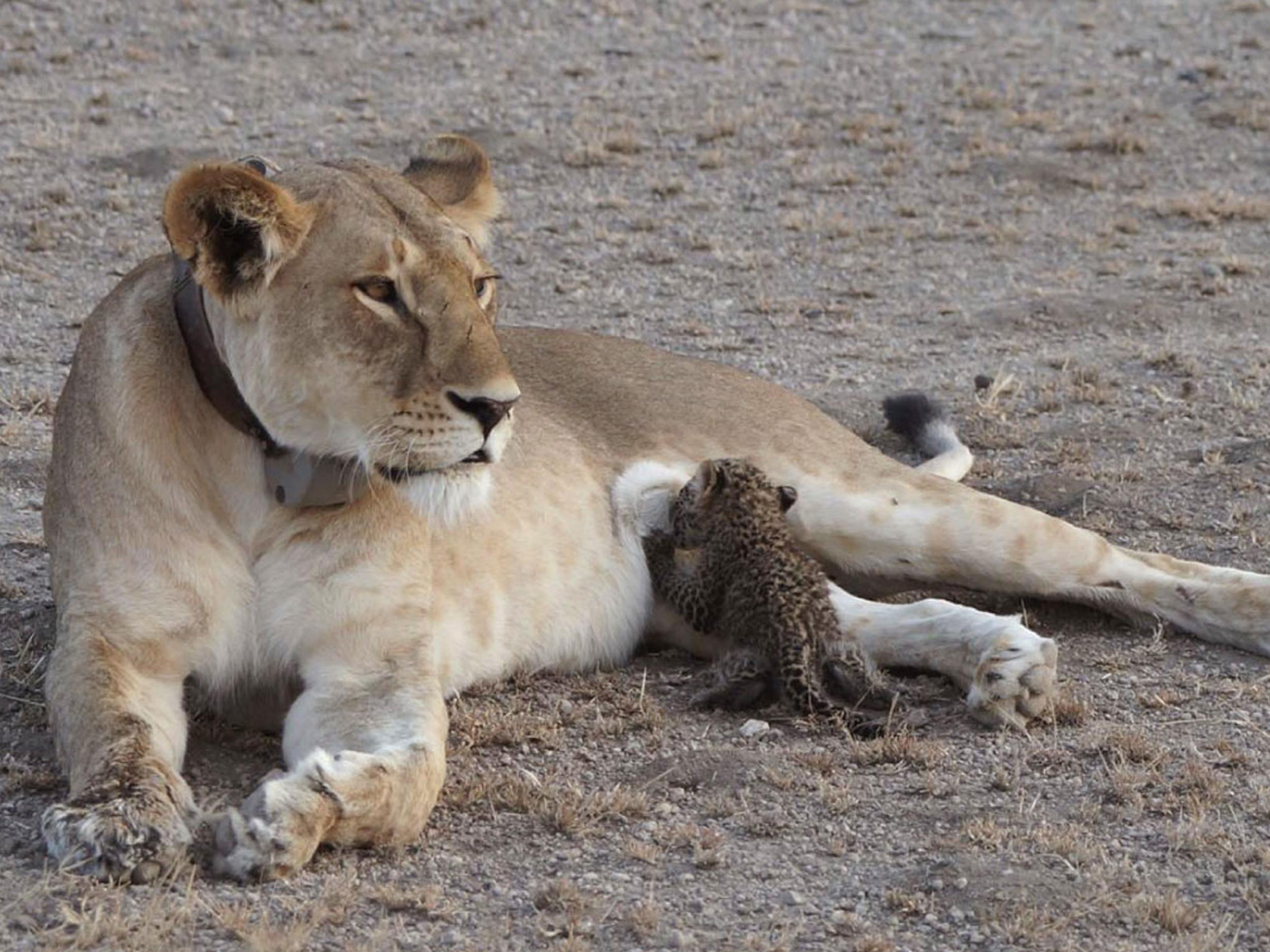Wild lioness pictured nursing baby leopard in first ever sighting of inter-species parenting of its kind
'There has never been another case like it' an expert says

A baby leopard has been pictured suckling a lioness in the wild, in the first ever documented example of interspecies parenting of its kind.
The five-year-old lioness, called Nosikitok was reclining on the grass and nursing a leopard cub, thought to be no more than three-weeks-old. The image was taken by a touris at a lodge in Tanzania's Ngorongoro Conservation Area, a United Nations official World Heritage site.
“To observe a thing like his is very unusual,” said Ingela Jansson, head of KopeLion, a conservation group attempting to resolve ongoing issues between lions and people living nearby who hunt big cats in an effort to protect their livestock.
The lioness wears a GPS collar allowing researchers to track her. Ms Jansson said she believed she may have lost her cubs and, in a brief moment of vulnerability, allowed the baby leopard to feed. The cub had in turn lost its mother, who may have been killed by the lioness, as the two species regard one another as competition.
According to a statement by wild cat conservation group Panthera: “Cross-species nursing for wild cats, and other wildlife for that matter, is extremely unique.
“This is a truly unique case,” Panthera’s president and Chief Conservation Officer Dr Hunter said.
“I know of no other example of inter-species adoption or nursing like this among big cats in the wild. This lioness is known to have recently given birth to her own cubs, which is a critical factor. She is physiologically primed to take care of baby cats, and the little leopard fits the bill — it is almost exactly the age of her own cubs and physically very similar to them.
“She would not be nursing the cub if she wasn't already awash with a ferocious maternal drive,” he continued.
“Even so, there has never been another case like it, and why it has occurred now is mystifying. It is quite possible she has lost her own cubs, and found the leopard cub in her bereaved state when she would be particularly vulnerable.”
However, the baby leopard’s road will be difficult, because even if the lioness accepts the baby as her own, it is unlikely the rest of her pride will do the same.
Dr Hunter said: “Lions have very rich, complicated social relationships in which they recognise individuals - by sight and by roars - and so they are very well equipped to distinguish their cubs from others. If the rest of the pride finds the cub, it is likely it would be killed."
However, if the cub became independent, which usually occurs between 12 and 18 months for leopards, it would return to behaving like one. Given that its species are solitary hunters, it would likely leave the pride and survive.
With additional reporting from AP.
Join our commenting forum
Join thought-provoking conversations, follow other Independent readers and see their replies
Comments